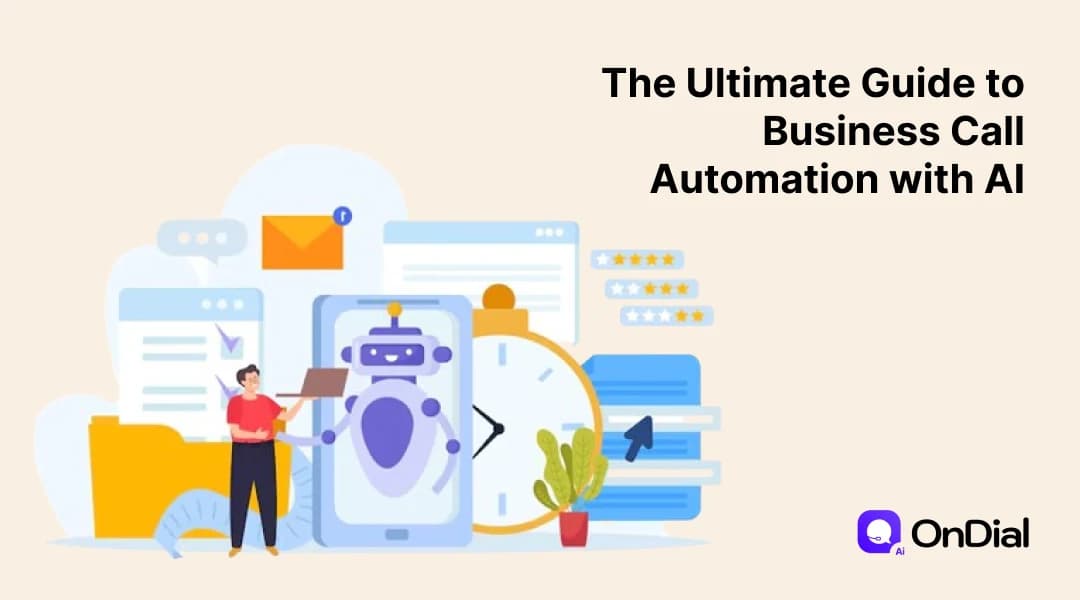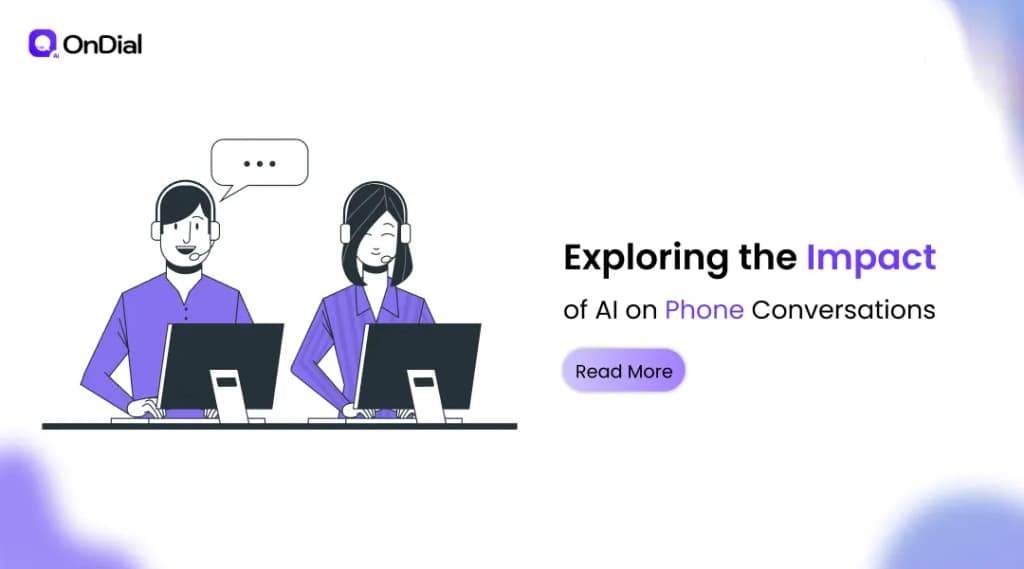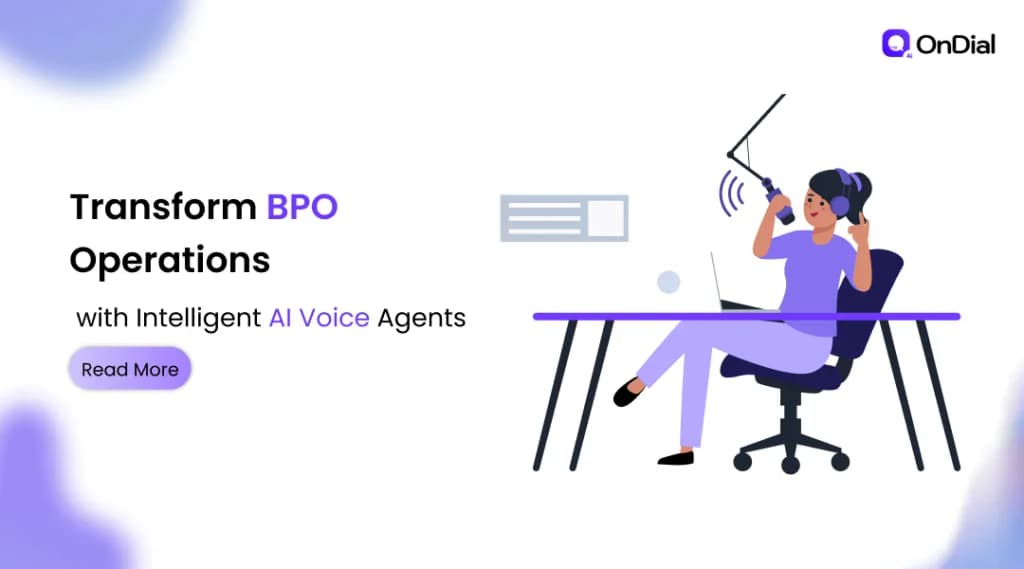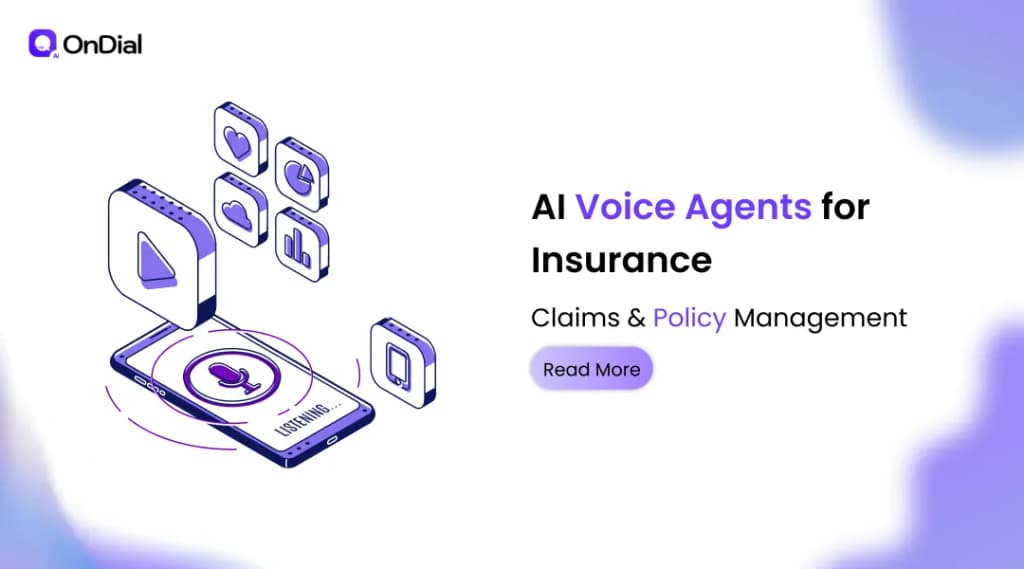I get it. You’ve probably stared at a growing stack of missed calls, frustrated customers, and overworked support staff, wondering: there has to be a better way.
There is. And no, it’s not hiring ten more people. Enter AI call automation. Think of it as your new digital team member, never tired, never distracted, and surprisingly polite.
I’ve watched businesses transform overnight just by letting AI handle repetitive calls. But let’s be honest: not all AI is created equal. The wrong solution can sound robotic, irritate customers, and leave your team worse off. The right one? It’s almost like magic.
By the end of this guide, you’ll know exactly why AI call automation matters, how it works, what features actually matter, and how to pick a system that won’t make your customers regret calling you.
Benefits of AI Call Automation
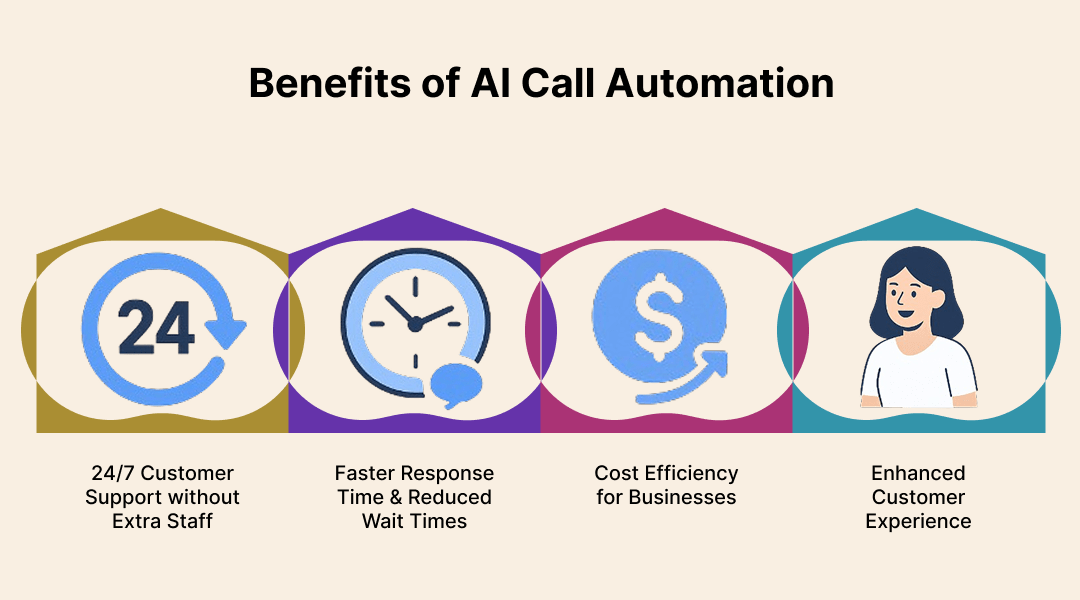
24/7 Customer Support without Extra Staff
Imagine a customer calling at 2 a.m. with a simple inquiry. Without AI, they wait. They fume. They Google your competitor. With AI call automation, they get instant, accurate answers. No humans needed.
And yes, it scales. Hundreds of simultaneous calls? Handled effortlessly.
Faster Response Time & Reduced Wait Times
Long hold times are the silent deal killers. AI eliminates the waiting game. Calls are routed instantly. Questions answered in seconds. Leads don’t grow cold.
Cost Efficiency for Businesses
Let’s cut the fluff: human agents are expensive. Training, salaries, benefits. AI doesn’t get sick, take vacations, or ask for a raise. One AI voice assistant can manage the workload of three, five, maybe ten employees. The ROI? Immediate.
Enhanced Customer Experience
Here’s the tricky part: AI must sound human enough to matter. The wrong AI frustrates; the right AI delights. Personalized interactions, consistent follow-ups, and prompt responses make customers feel seen. And loyal.
Key Features of AI Call Automation
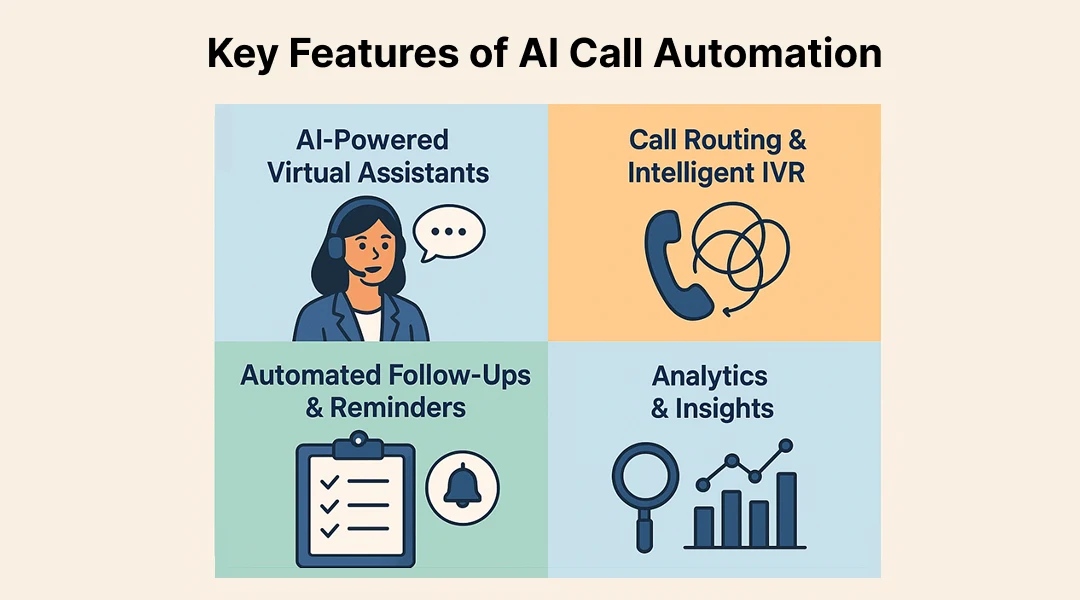
AI-Powered Virtual Assistants
These aren’t your grandma’s robots. They understand natural language, respond contextually, and can even detect emotions in voice patterns. Your AI assistant can handle FAQs, schedule appointments, and guide customers seamlessly.
Call Routing & Intelligent IVR
No more “press 1 for sales, 2 for support, 3 for… sigh.” Smart routing sends calls exactly where they need to go, based on context and priority. Less frustration. More efficiency.
Automated Follow-Ups & Reminders
Missed calls or unattended leads? Forget about it. AI can automatically send reminders, confirm appointments, and follow up on pending queries. It’s like having a digital assistant who never forgets.
Analytics & Insights
Data isn’t sexy, but it’s everything. AI systems log call patterns, response times, common queries, and customer sentiment. Insights that used to take hours now appear instantly, guiding smarter decisions.
Top Use Cases
Sales & Lead Generation Calls
AI doesn’t just answer; it sells. It can qualify leads, set appointments, and nurture prospects without overwhelming your team. Your sales staff only deals with hot leads, maximizing efficiency.
Customer Support & Service
AI handles repetitive support questions, freeing humans to tackle complex issues. Faster responses, fewer dropped calls, happier customers.
Appointment Scheduling & Reminders
Whether a salon, clinic, or consultancy, AI manages bookings flawlessly. No double-bookings, no missed calls.
Feedback Collection & Surveys
Want to know what your customers really think? AI can collect feedback immediately after interactions, giving you actionable insights before the ink on the sale dries.
Choosing the Right AI Call Automation Software
Features to Look For
Not all AI is equal. Look for:
- Natural language understanding
- Customizable call flows
- CRM and VoIP integration
- Real-time analytics
- Multi-channel support (calls, SMS, WhatsApp)
Integration with CRM & VoIP
AI that doesn’t talk to your existing tools is useless. Make sure your platform syncs seamlessly with CRMs, telephony systems, and internal dashboards.
Security & Compliance Considerations
You’re handling sensitive data. End-to-end encryption, GDPR compliance, and audit logs aren’t optional—they’re mandatory.
Implementation Best Practices
- Prepare call scripts: Clear, concise, and natural.
- Train AI with business data: Past calls, FAQs, and scripts improve performance.
- Monitor & optimize: AI is never “set and forget.” Continuous feedback ensures it stays effective.
Challenges & How to Overcome Them
Handling Complex Queries
AI isn’t human. For nuanced or emotionally charged conversations, route the call to a real agent. Hybrid models work best.
Maintaining Human Touch
Pro-tip: inject personality. Use friendly greetings, personalized names, and empathetic responses. Humans notice.
Data Privacy Concerns
AI systems store sensitive data. Ensure anonymization, secure storage, and compliance. A single breach can destroy trust faster than a thousand missed calls.
Future of AI in Business Communication
Emerging Trends
- Emotion-detecting AI for better customer satisfaction
- Predictive AI that anticipates customer needs
- Conversational AI integrated with AR/VR experiences
AI Call Automation in 2026 and Beyond
AI is no longer optional. Within a few years, businesses without AI-assisted communication may struggle to compete. The goal isn’t to replace humans—it’s to amplify their impact.
Conclusion
AI call automation isn’t science fiction. It’s here. It works. And if implemented thoughtfully, it transforms businesses: faster response, happier customers, lower costs, and smarter teams.
If you’ve been wondering whether AI can actually deliver—stop wondering. Start planning. Start testing. Start winning.
